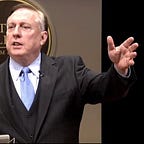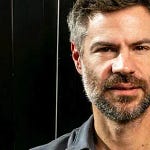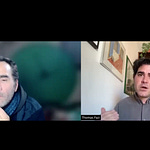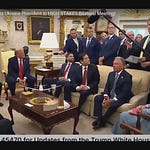Donald Trump: Master Improviser or Strategic Genius?
President Trump’s recent speech in Riyadh has sparked debate, with some suggesting it signals a shift in his stance toward Israeli Prime Minister Benjamin Netanyahu. Yet, his foreign policy remains elusive, lacking a clear impetus. As he aligns with much of the West in engaging Ahmad al-Sharaa (formerly Abu Mohammad al-Julani), the former Al-Qaeda and ISIS affiliate now leading Syria, is Trump yielding to Turkey’s Erdogan, whose military ambitions are bankrolled by Qatar?
Are neoconservatives still wielding power in Washington despite reported purges in intelligence agencies, the State Department, and the dissolution of USAID? To shed light on these issues, we turn to Colonel Douglas MacGregor, a retired U.S. Army officer and former senior Pentagon advisor. Below is a summarized transcript of our conversation.
L'Eclaireur: I’m delighted to welcome Colonel Douglas MacGregor again to discuss critical global issues, including Ukraine, the Middle East, and developments in Washington. Let’s start with your thoughts on President Trump’s speech in Riyadh. Some see it as a shift from Washington’s traditional foreign policy. Is this a genuine change or just a tactical maneuver?
Col. MacGregor: I view the Riyadh speech as more of a tactical maneuver than a fundamental shift. Trump’s rapid changes in stance create confusion, and I see no evidence of a coherent strategy. Some argue this strategic ambiguity is brilliant, but I believe the world needs certainty and stability from the U.S., which we’re not providing. His approach seems driven by impulsive behavior rather than a clear plan. I hope I’m wrong, but so far, I haven’t seen evidence to the contrary.
L'Eclaireur: Did Trump’s speech indicate a move away from letting Israel use U.S. military power for its own objectives?
Col. MacGregor: Some interpret it that way, but I wouldn’t jump to that conclusion. Netanyahu has significant influence over the U.S. Congress, far more than Trump does. The “Israel First” policy remains firmly in place. Trump’s visit to Saudi Arabia was partly to repair damage from his tariff war, which foolishly targeted both allies and competitors. It also reflects growing U.S. concern about BRICS and China’s One Belt, One Road initiative, which is building global commercial networks to position China as the economic epicenter. Unlike the U.S., China doesn’t impose its values on other nations, focusing instead on trade and infrastructure. Forty countries are applying to join BRICS, representing 75-85% of the world’s population and 60-70% of global GDP, while the U.S. is deeply in debt and facing a potential recession or depression.














